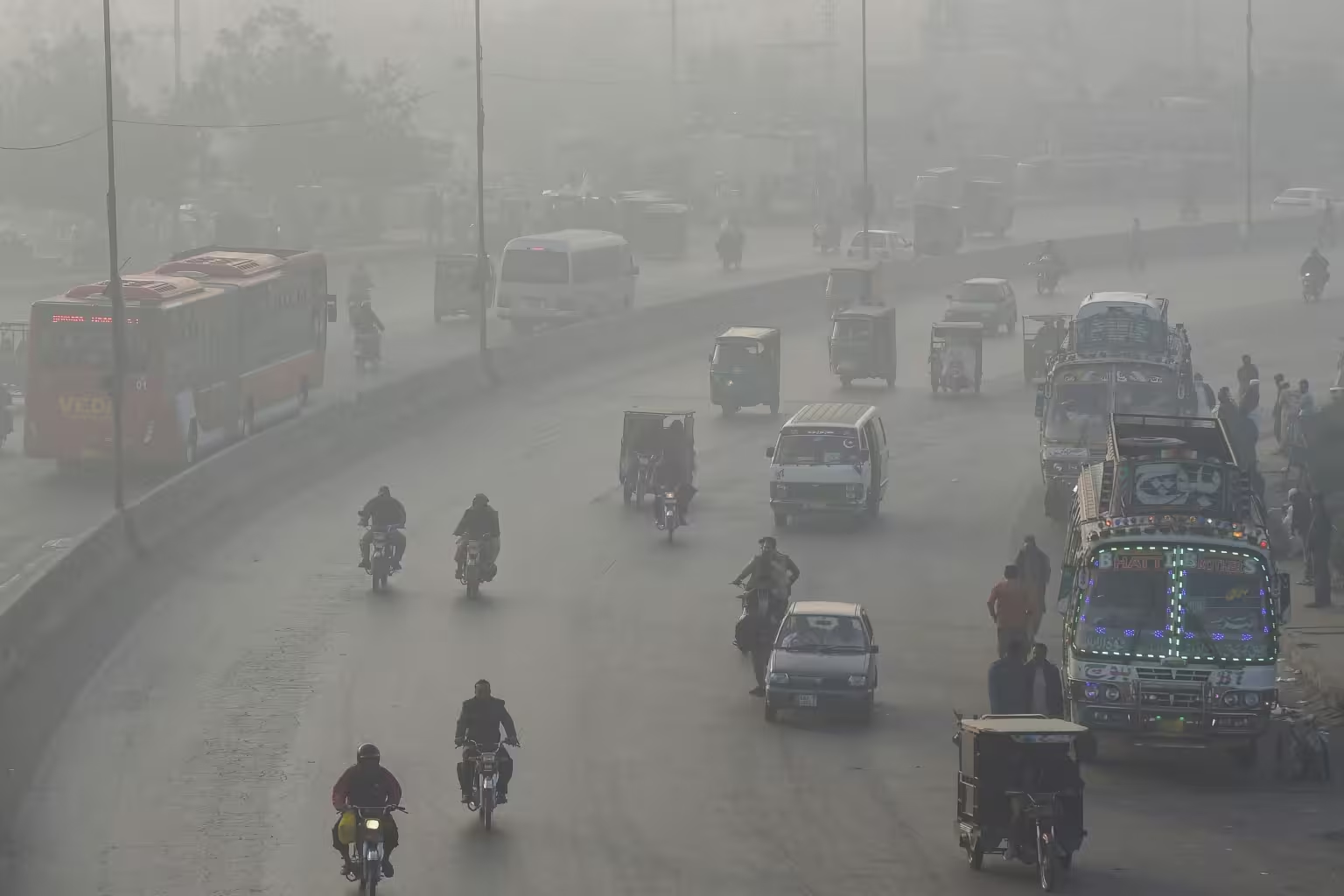Air Quality
The air quality in Lahore has deteriorated alarmingly, with the city recording a dangerously high Air Quality Index (AQI) of 1067, as reported by international air monitoring agencies.
This significant pollution level indicates that the atmosphere is heavily contaminated with toxic chemicals, exceeding the World Health Organization’s (WHO) recommended air quality guideline limits by nearly 122 times.
The data highlights specific areas within Lahore that are particularly affected. Defense Phase 8 has reported an astonishing AQI of 1853, marking it as the most polluted area in the city.
Following closely is Askari 10, which recorded an AQI of 1720. Other notably affected areas include Defence Phase 5 with an AQI of 1429, Mall Road reaching 1337, and the bustling Gulberg area, known for its commercial activities, recording an AQI of 1312.
Health experts are sounding the alarm about the serious risks posed by such high levels of air pollution.
Prolonged exposure to these toxic conditions can result in respiratory complications, particularly for individuals with pre-existing health conditions.
Medical professionals are advising residents to minimize outdoor activities and, if necessary to venture outside, to wear masks for protection.
In response to the severe smog conditions, the Punjab government has initiated a ‘green lockdown’ in Lahore’s Shimla Pahari and surrounding areas.
This initiative is part of a broader multi-sectoral plan spearheaded by the Chief Minister of Punjab aimed at reducing air pollution levels across the province.
Measures taken include spraying water mixed with disinfectants in heavily smog-affected regions, such as Abbott Road, Gulistan Chowk, Haji Camp, and Empress Road. To assist residents in reporting high pollution levels, a hotline—1373—has been established.
Additionally, the campaign addresses issues of urban encroachment by planting 200 saplings and plants while demolishing temporary structures in areas like Haji Camp and Empress Road.
Traffic congestion is also a concern, prompting authorities to implement road repairs and deploy special surveillance teams to manage the situation better.
Under the green lockdown, residents are encouraged to adopt carpooling to reduce vehicle emissions, and parking spaces are being relocated away from congested areas to alleviate traffic.
Monitoring emissions from power generators in government offices is also a key aspect of the measures being implemented.
Overall, these efforts signify a concerted attempt by the Punjab government to combat air pollution and improve the living conditions for Lahore’s residents.


